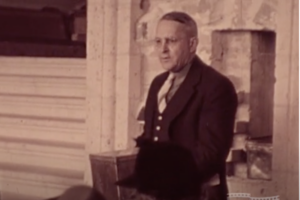Fifteen years ago today (March 20), the United States invaded Iraq. The goal was to eliminate an aggressive dictatorship that had invaded its neighbors and developed weapons of mass destruction. Saddam Hussein’s overthrow promised to remove a recurring source of war and instability. Indeed, in the aftermath of the Sept. 11, 2001, terrorist attacks, many Americans were eager to eliminate this dictator, despite his noninvolvement with those attacks. He was part of the general problem — violence, tyranny and extremism.
We should not regret Saddam’s overthrow, but we must also recognize that the war did not bring the promised benefits for the United States. Simply put, we should not repeat the mistakes of the past.
Violence in the region grew with the rise of an anti-American insurgency, a sectarian civil war and the spread of terrorist groups around Iraq. Our adversaries, particularly Iran, exploited the chaos, and American taxpayers and soldiers paid a high price.
Today, something similar is happening as our leaders contemplate military action to eliminate another set of threatening dictators in North Korea, Syria, and perhaps Iran. In each case, the danger to the United States from aggressive leaders, weapons of mass destruction, violent paramilitaries and radicalized sympathizers is very real. In each case, the United States possesses enough power to bring down these regimes.
But the painful failure in Iraq should caution us against another war. It’s true that our military power remains unmatched, but it cannot ensure the political outcomes that we desire.
When we break state tyrannies, our overwhelming force empowers the terrorists who wish to do us harm. Occupying foreign lands, even temporarily, provides propaganda for our enemies who wish to show that we are intent on destroying their traditions. Our president’s “America First” rhetoric feeds foreign perceptions of religious hostility from the United States, which helps terrorist groups recruit young men and women to attack us.
At home, recent wars have divided us. We may rally around the flag for the first weeks of war, but differences become magnified as costs multiply — the ballooning budgets, the images of death on our screens, and the maimed bodies of our fallen soldiers. Relying on an all-volunteer military rather than a draft, we do not have a shared sense of sacrifice. Instead, wars bring expectations of quick victory that turn to recrimination when that victory does not come.
The war in Iraq only stabilized when the United States used more diplomacy. During the “Surge” American forces left their bases to interact more directly with civilians and local leaders. They negotiated agreements to cooperate on apprehending terrorists and sought assistance from foreign allies and international institutions that the United States had formerly shunned.
Even our diplomats entered negotiations with terrorists and their supporters. American military power was essential, but it was not as dominant as originally envisioned. The best U.S. commanders worked closely with civilians from diverse backgrounds to build and compromise rather than attack and destroy.
This was a hard lesson, yet we have already forgotten it. What our leaders must remember is that diplomacy is our best weapon. We need to expand on the nuclear agreement that we and five other nations negotiated with Iran. Following our South Korean ally’s lead, we should enter direct negotiations with the leader of North Korea. And the only way to stop the genocide in Syria is through more negotiations with regional leaders, including Bashar Assad.
But our current leaders have denigrated negotiations and have depleted our diplomatic corps. The U.S. Department of State has lost much of its best talent, shrunk its numbers and slashed funding for cooperative programs with foreign countries.
The same process is underway in our intelligence agencies. We are no longer collegial participants in world institutions, including the United Nations, and we have pulled out of major global accords. Despite the clear costs of unilateral militarism in Iraq, we are on a path to do the same in the next war.
We may despise foreign dictators, but military force to overthrow threatening regimes creates more problems than it solves. That is the main lesson of the Iraq War. We are better off investing in other forms of leverage that include foreign allies, international institutions and direct negotiations — even with those we wish to remove.
Jeremi Suri is the Mack Brown Distinguished Chair for Leadership in Global Affairs at The University of Texas at Austin. His most recent book is “The Impossible Presidency: The Rise and Fall of America’s Highest Office.”
A version of this op-ed appeared on CNN Digital.
To view more op-eds from Texas Perspectives, click here.
Like us on Facebook.




